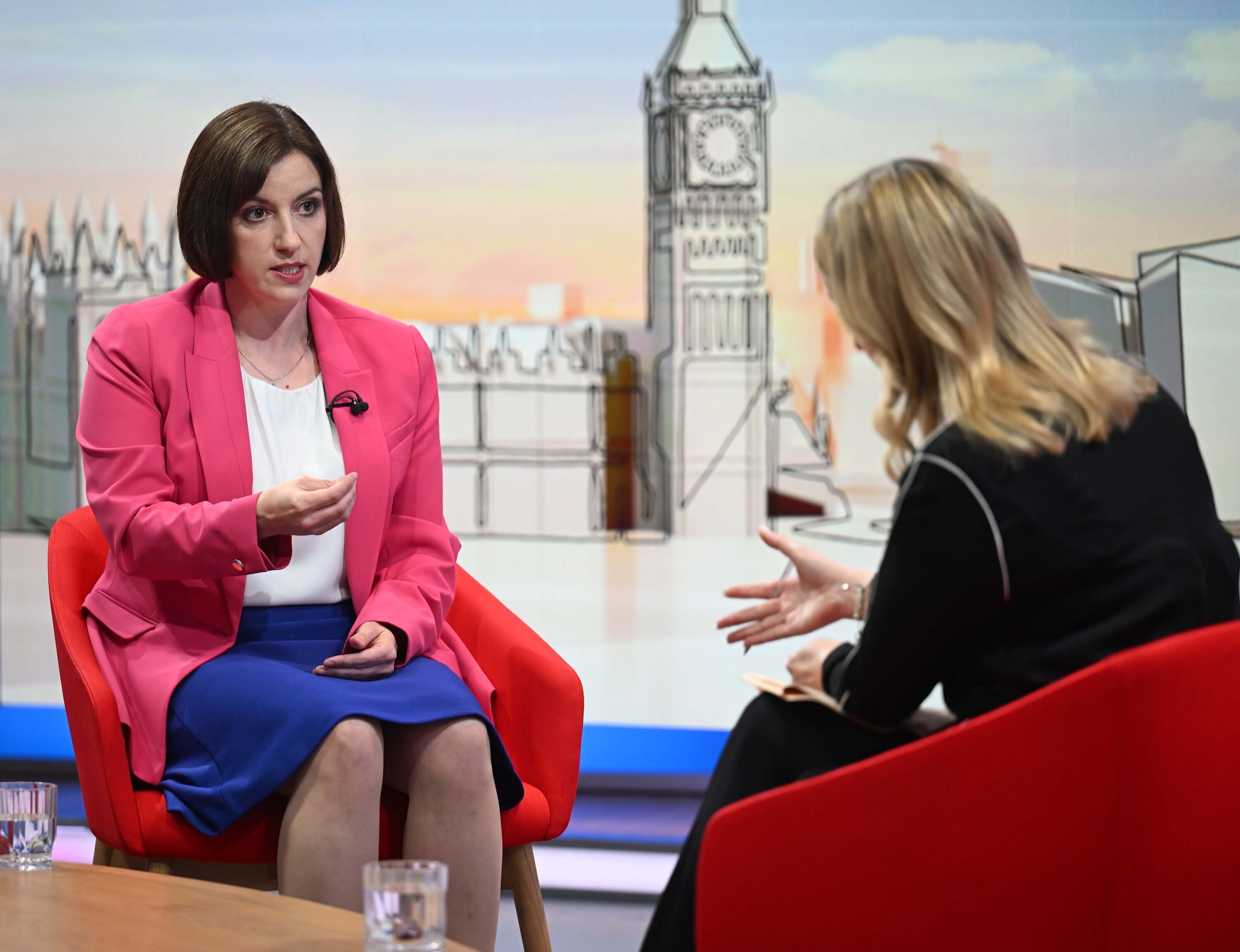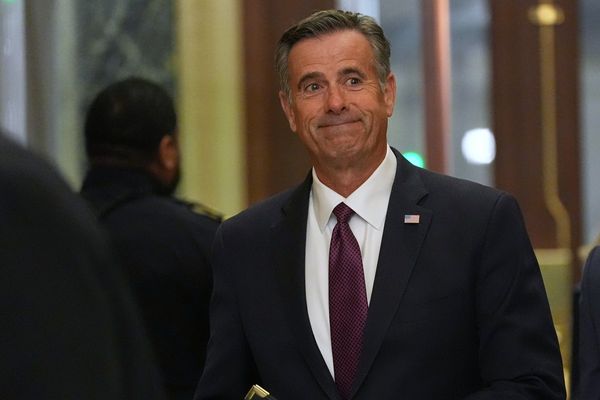Sir Keir Starmer is under fresh pressure to address “unanswered questions” over the China spy case controversy as the government was accused of being complicit in a “cover-up” over the saga.
On the day MPs return to Westminster from conference recess, Kemi Badenoch has written to the prime minister calling for “clarity and honesty” and asking him to make a statement in Parliament over the collapse of a case against two men accused of spying for Beijing.
The intervention came as former security minister Tom Tugendhat described the collapse of the case as “absolutely abhorrent” and claimed the government is “willing to cover up the actions of a hostile state”.
There have been growing questions over the case after the former chief of the Secret Intelligence Service said he is unsure why the prosecution against Christopher Cash, a former parliamentary researcher, and Christopher Berry, a teacher, was dropped, and other former top civil servants raised alarm.
In recent days, the prime minister’s team has faced allegations that they had access to multiple documents that proved China was a national security risk but supposedly chose not to hand them over to the Crown Prosecution Service (CPS) before the case was brought to a close.
The prime minister has maintained that the last Conservative administration had not designated China as a threat to national security, so his government could not provide evidence to that effect, which the director of public prosecutions, Stephen Parkinson, said was required to meet the threshold for prosecution.
But the collapse of the case has raised questions about Britain’s willingness to confront China as Sir Keir’s government looks to build closer ties with the country.
The Conservative Party is now seeking an urgent question on the case, while Tory grandee and China hawk Sir Iain Duncan Smith was understood to have put in for an emergency parliamentary debate.
In a letter to the prime minister, who on Monday will be in Egypt attending a summit of world leaders on the Gaza peace plan, Mrs Badenoch said: “Your government’s account of what has happened has changed repeatedly.
“Instead of setting out the full facts before the House of Commons today, you are planning to travel to the Middle East.
“If you will not make a statement yourself, will you instruct a senior minister to clear things up once and for all through a full parliamentary statement? The public and Parliament deserve answers and transparency.”
Yet more evidence that Starmer is not telling the truth about the collasped China spy case. 👇
— Iain Duncan Smith MP Chingford & Woodford Green (@MPIainDS) October 8, 2025
The Labour government’s excuse for collapsing this trial - the most significant breach of parliamentary security in decades - does not hold water.
1) The Crown Prosecution Service was…
Meanwhile, Mr Tugendhat told BBC Radio 4’s Today programme: “I think this is absolutely abhorrent action and I think the right thing to do is to have gone to trial, but the government appears to have decided that there are other reasons why the British people should not have the ability either to choose their own Members of Parliament or to allow those Members of Parliament to speak freely, but instead, is willing to cover up for the actions of a hostile state which is seeking to intervene in the freedoms of the British people.”
“The principal charge is that in the interests of a foreign power, the government seemingly has intervened either by action or omission in the proceeding of justice in this country, which is a staggering charge to lay at somebody who claims that the background ethos of his entire political philosophy is justice”, he added.
Britain’s most senior prosecutor has since said the case collapsed because evidence describing Beijing as a national security threat could not be obtained from Sir Keir’s administration.
Mrs Badenoch said ministers must say whether it was “still your government’s position to claim that it would have been impossible to argue that China was a threat in court”.
The Conservative leader also demanded answers to claims that national security adviser Jonathan Powell had discussed the case in a meeting last month.
The Sunday Times reported that the senior aide had revealed the government’s evidence would be based on the national security strategy, which was published in June and does not refer to China as an “enemy”.
But Downing Street insisted that Mr Powell, a diplomat and former chief of staff to Sir Tony Blair, played no role in the decision.
"The national security adviser made no decision on the contents of any evidence relating to the case, nor did he take any decisions about the substance of the case itself”, the prime minister’s official spokesperson said.

Mr Parkinson said last week that the CPS tried for “many months” to obtain the evidence it needed, but it had not been forthcoming from the government.
On Monday, foreign office minister Hamish Falconer was frank in signalling that the government does consider China a threat to the UK in certain areas.
He told Times Radio: “They do pose national security threats to the UK, whether that’s in relation to cybersecurity, transnational repression, their relationship with Russia, in relation to the conflict in Ukraine; but there are also, of course, areas where we have to cooperate.”
Mr Falconer insisted the trial collapsed last month because of the “ropey” and “archaic” Official Secrets Act, as well as saying ministers will follow the normal process when it comes to settling a decision about whether China can build its so-called “super embassy” in London.
It comes amid reports that the government delayed making a decision on plans for the embassy at Royal Mint Court, near the Tower of London, as a result of scrutiny following the collapse of the spying case.
But The Times has since reported that the government has given Beijing assurances that it would progress its planning application.
It is understood a decision on the embassy’s planning application is expected by October 21.
The White House has also piled pressure on the government over the case, with sources close to the Trump administration said to have concerns about the UK’s reliability following the dropping of charges.
Meanwhile, Lord Mark Sedwill, a predecessor to Mr Powell, expressed confusion about why the trial fell apart because Beijing was “of course” a threat to the UK, while former Cabinet secretary Lord Simon Case said intelligence chiefs had publicly warned of the threat from China for years.
And former MI6 chief Sir John Sawers said he is “a bit confused and unsure about why the prosecution was dropped”.
The prime minister has blamed the Conservative administration in power at the time of the alleged offences between December 2021 and February 2023, suggesting “the only relevant evidence” would relate to this period.
Sir Keir pointed to the stated foreign policy position towards Beijing of the then-Tory government, which was to describe the country as an “epoch-defining challenge” rather than a threat.
No 10 denies that fears Beijing could pull cash caused China spy case collapse
Why does Trump keeps rescuing Starmer from international humiliation?
Forbes calls for windfall tax to be replaced at the coming Budget
Row breaks out over UK’s role in Gaza peace plan as minister labelled ‘delusional’
Reform council leader vows to ‘lie in front of bulldozers’ to stop net zero projects
Donald Trump unsure whether Tony Blair would be ‘popular’ choice for Gaza role







